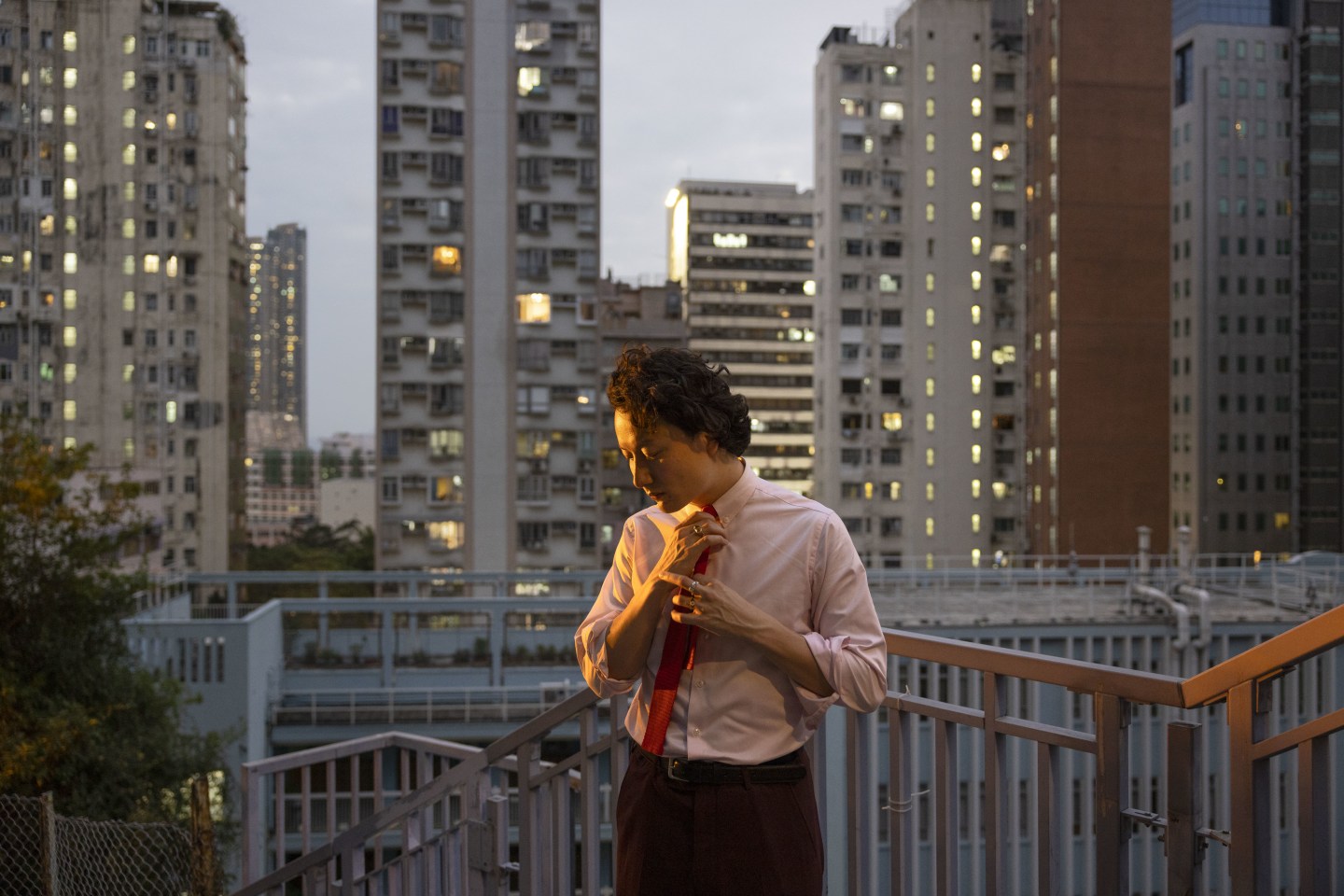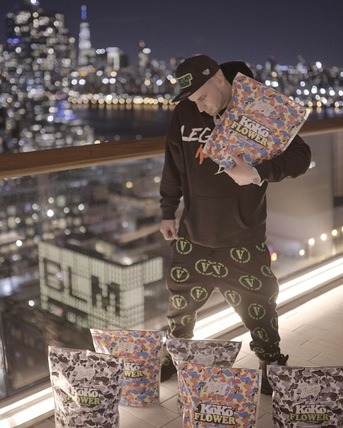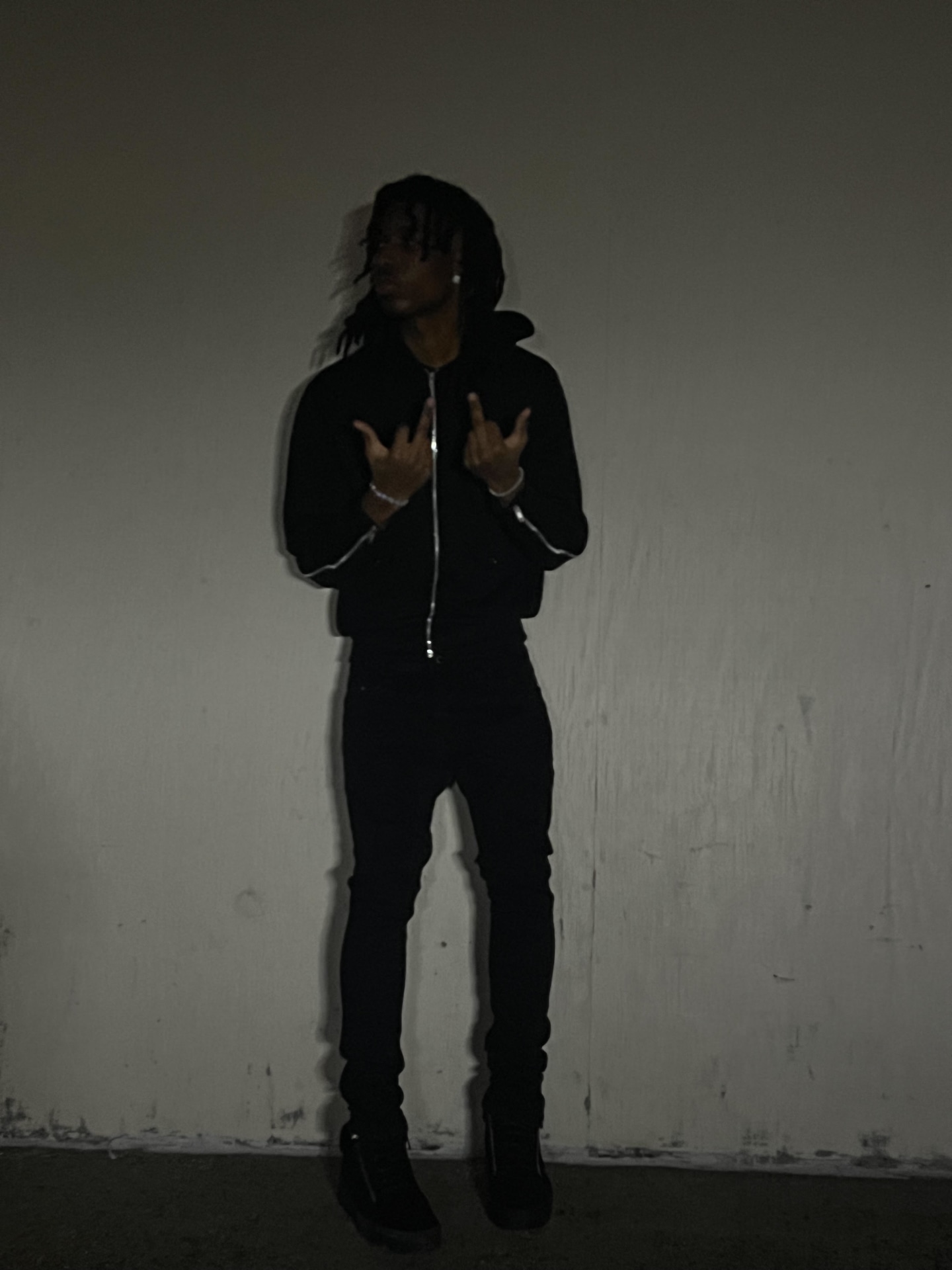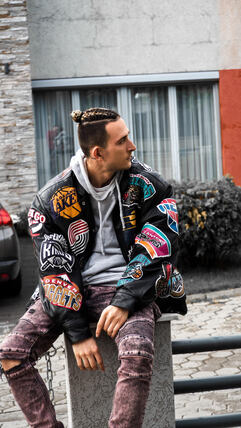Bolis Pupul. Photo by Bieke Depoorter
Bolis Pupul didn’t plan to construct his debut solo album around a letter to his late mother, Yu Wei Wun, when she died suddenly in 2008. The thought still hadn’t crossed his mind 10 years later, when he first visited her native Hong Kong, but the wheels were set in motion on that trip.
Standing on Ma Tau Wai Road, the busy thoroughfare where her birth certificate claimed she was born, he was overcome by the sounds of the city — muted though they were by the surrounding skyscrapers — and the smell of incense wafting from a nearby pagoda where monks knelt in prayer. “I had the reflex to grab my phone and write down what I wanted to say to her,” he remembers. “I needed that closeness, the feeling of proximity with my mom.”
Pupul makes an irreverently framed but carefully curated strain of dance music that contains in its DNA the early experiments of Kraftwerk, the new beat grooves of his native Belgium, the techno and house of the ‘80s American midwest, and the latter genre’s French variants in the ‘90s (e.g. Daft Punk) and ‘00s (e.g. Justice). It was Stephen and David Dewaele of Soulwax, though, who were most instrumental in shaping the arc of his career. Idolizing them as a teenager, he was one of the first artists to join DEEWEE, the label they founded in 2015. For his first long-form release, 2022’s Topical Dancer, he teamed with his labelmate, vocalist Charlotte Adigéry, sewing his multifarious stylistic inspirations into a seamless, shiny suit whose extravagance belied the meaty social critique in the body of his partner’s tongue-in-cheek lyrics.
When he came back from his first Hong Kong trip, the Dewaeles asked him to read the letter he’d written his mother. “My heart is in my throat / My eyes filled with tears,” it starts. “This is where you were born / 59 years ago / And I’m finally here / Why did it take me so long?” They immediately suggested he make it the centerpiece of his album. When he returned to Hong Kong the following year, they encouraged him to write or record something new every day. Audio captured at the intersection that inspired the project’s founding document, for instance, sets the scene for the letter’s reading on its opener and title track.
“Letter To Yu” is a grand, slow march, but the album is an upbeat affair overall, pulling on the same uplifting electronic threads Pupul has used in the past. His trips to Hong Kong, he says, were overwhelmingly positive experiences, despite the grief that inspired them. “I was discovering so many things that it wouldn’t make sense to me if I’d only made a sad record about mourning the loss of my mom,” he explains. Hence, the bouncy levity of tracks like “Frogs,” “Spicy Crab,” and “Kowloon.”
Still, Yu is honored on the record, both lyrically — see “Ma Tau Wai Road,” written following Pupul’s realization that the maternity clinic where his mother had been born had since become a nursing home, and sung by his sister Salah — and sonically, through his emphasis of East Asian styles such as city pop for the first time.
“It wasn’t a conscious mixture I was making, though,” he contends. “It wasn’t premeditated. It came instantaneously and with only the intent of grasping the moment. Apparently those melodies are inside me, and when I’m in Hong Kong they happen to be very present in my system.”
He extends the sentiment further, speaking on the epigenetic history connecting him to his mother on a subconscious level. “There was a weird kind of recognition when I entered Hong Kong for the first time, on a cellular level,” he says. “There’s this kind of memory in our bodies that we pass on for generations.”
Whether via genetic data or less scientifically rooted phenomena, Pupul still feels Yu’s presence in his life. On “Completely Half,” he sings about the many moments during his stay in Hong Kong when he felt sure he saw her in the street or on the train, but only for a split second. On the album’s multi-lingual closer “Cosmic Réndesvous,” he’s more direct with his allusions to the supernatural. “Will you be able to contribute to the creative pool of the universe so that something remains permanent after you leave this planet?” he asks in Dutch.
“My mom was very spiritual, and it’s easier for me to connect with her in a spiritual way, when I meditate or when I’m in a pagoda burning incense,” he tells me. “When she passed away, I could feel her in the wind. Sometimes I went for walks in nature, and it felt like she was embracing me when the wind was heavy, and I embraced the wind. It was like she was there with me. I’m sensitive to those kinds of thoughts, and I don’t know if it’s real or if it’s fake, but in the end, it gives me some kind of comfort.”





